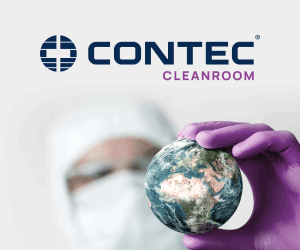Evonetix has announced a collaboration with Analog Devices. The companies will work together on the advancement and commercial scale-up of Evonetix’s proprietary microelectromechanical systems (MEMS)-based silicon chips and accelerate the development of Evonetix’s first product, a DNA desktop writer.
Evonetix’s silicon chip controls the synthesis of DNA at many thousands of independently controlled reaction sites or ‘pixels’ on the chip surface in a highly parallel fashion.
They agreed to extend the collaboration as Evonetix continues to work with Analog Garage, Analog Devices’ corporate incubation lab, to develop an integrated technology which includes the MEMS platform, an application specific integrated circuit (ASIC) to miniaturise the control electronics, and flow cell. Analog Devices will assist with the commercial scale-up of the technology, and manufacture devices for the desktop DNA writers.
Evonetix’s DNA synthesis technology, which will be sold to laboratories as a ‘plug and play’ desktop instrument, will synthesise DNA for applications including pharmaceuticals and drug discovery, industrial biotech, specialty chemicals, renewables, agriculture and materials science.
Dr Matthew Hayes, Chief Technology Officer at Evonetix, said: “Collaborating with Analog Devices is a significant step forward in our mission to develop a highly parallel desktop platform to accurately synthesise DNA at scale. The support and expertise of the Analog Garage R&D team has been invaluable in helping us design a complex control ASIC and we now look forward to expanding our collaboration to achieve the commercial scale-up of our platform.”
Pat O’Doherty, Senior Vice President of Digital Healthcare at Analog Devices, added: “Evonetix is a pioneer in reimagining biology and developing a radically different approach to synthesising long-chain DNA at unprecedented accuracy and scale. This collaboration provides Analog Devices with an opportunity to enter the growing synthetic biology market. Our work together is aimed at increasing the speed and reducing the cost of gene assembly to provide novel strategies that can be used to produce affordable medications and treat a wide range of diseases globally.”




